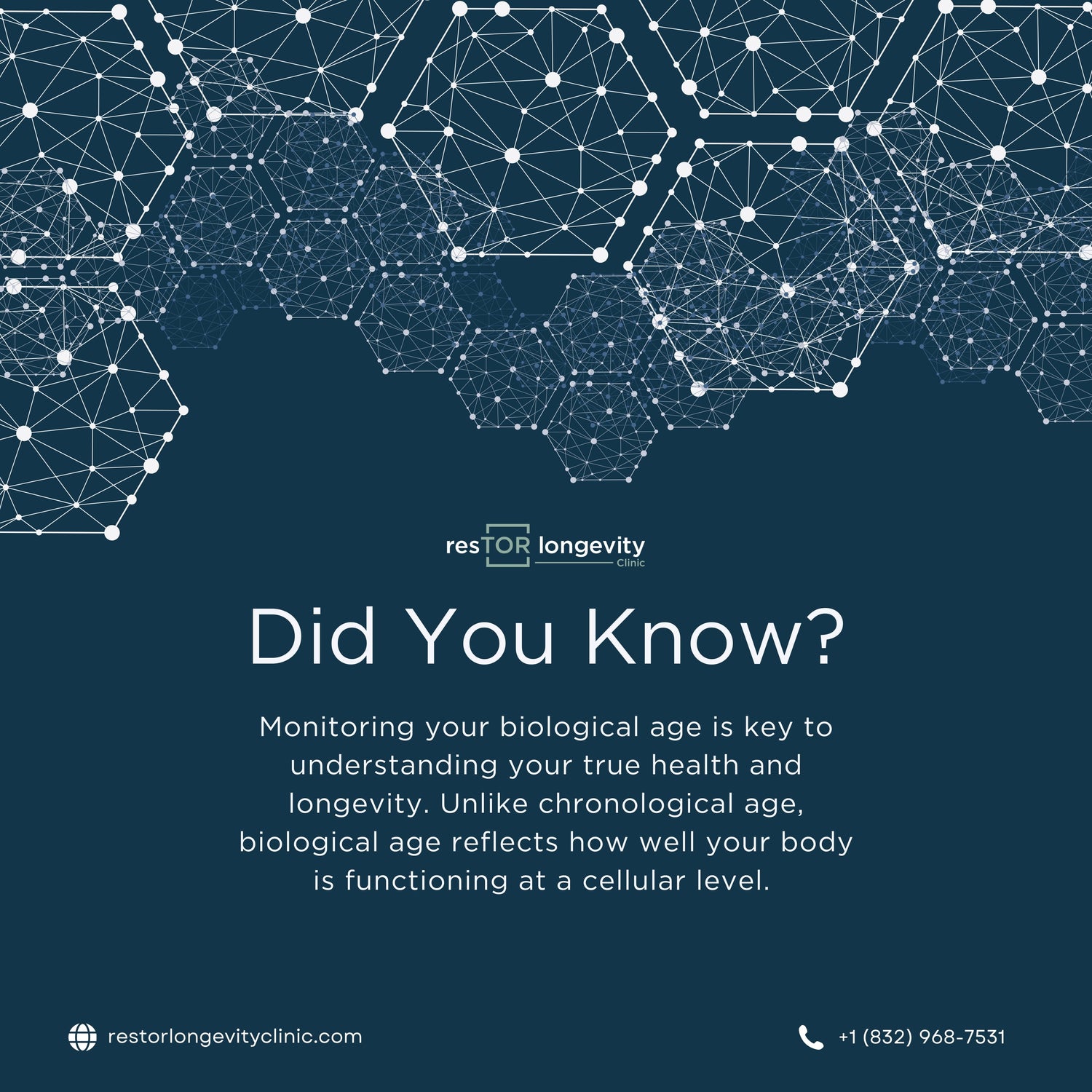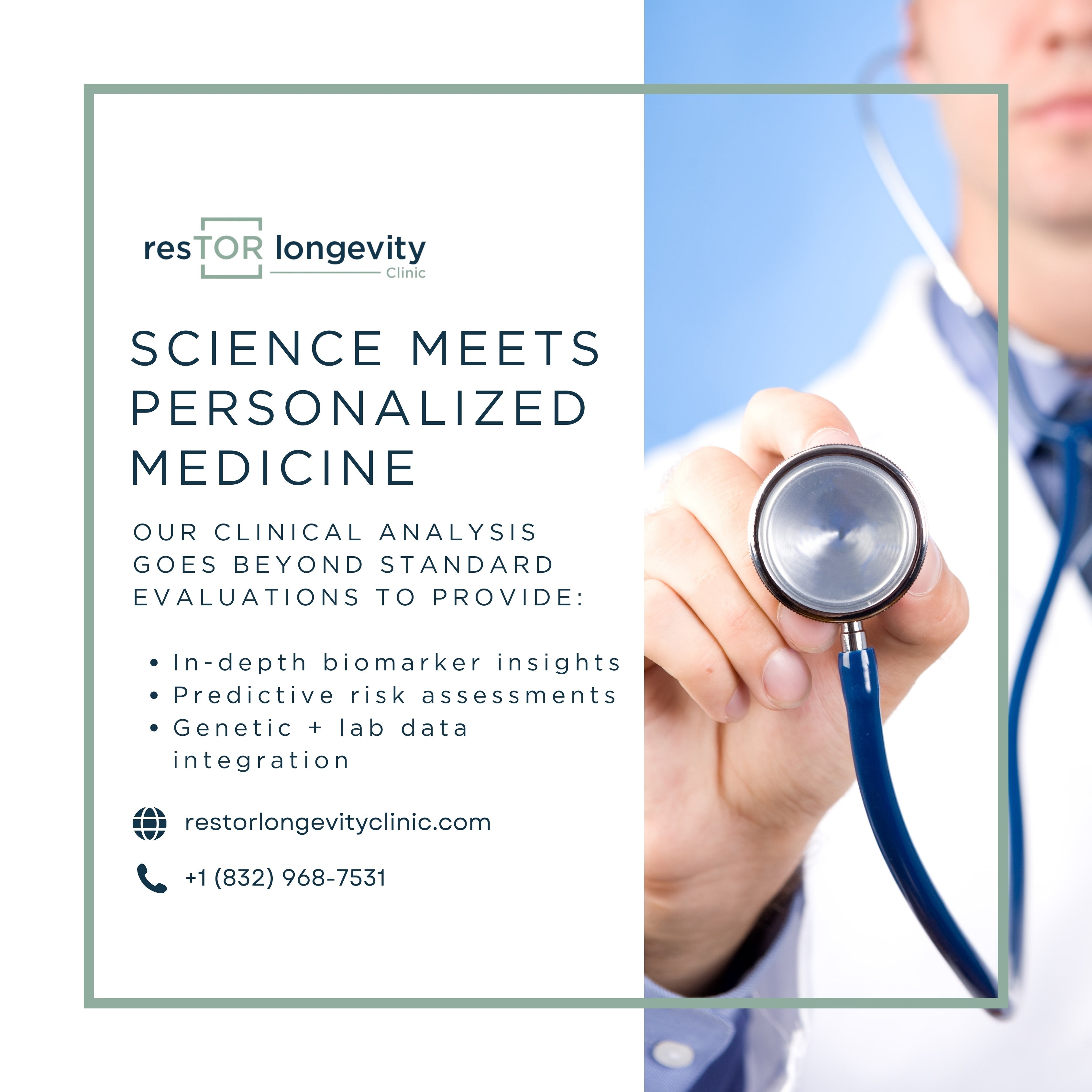Did you know that understanding your biological age can be the key to unlocking better health and longevity? Unlike chronological age, which simply marks the passage of time, biological age reflects the actual physiological condition of your body. Studies suggest that monitoring biological age can give you insights into how well your body is functioning at a cellular level and can help in crafting personalized health strategies. In this comprehensive guide, we'll explore what biological age is, how to monitor it, its significance in optimizing wellness, and practical steps you can take to improve it.
What Is Biological Age?
Biological age refers to the physical and functional state of your body, as opposed to the number of years you’ve been alive (chronological age). This measurement can be influenced by various factors, including genetics, lifestyle choices, and environmental factors. Essentially, while one person may be 40 chronologically, their biological age could be determined to be 35, indicating better overall health.
The concept of biological age allows us to look beyond the calendar and understand how our daily habits and environmental exposures impact our health. For instance, good nutrition, regular exercise, quality sleep, and stress management can positively influence biological age.
Why Monitor Biological Age?
Regularly tracking your biological age can help identify the underlying factors affecting your health and longevity. Here are a few reasons to consider:
- Personalized Health Plans: Understanding your biological age helps tailor health plans specifically for you. Individualized strategies about diet, exercise, and supplementation can be developed.
- Early Detection of Health Issues: Monitoring biological age through advanced blood panels and health markers can provide early detection of age-related diseases such as diabetes, heart disease, or even cancer.
- Motivation for Lifestyle Changes: Seeing the actual impact of your lifestyle on your biological age can be a powerful motivator. Changes may lead to gradual improvements that boost your confidence and energy levels.
How Is Biological Age Measured?
1. Genetic Testing: Certain tests assess your DNA to provide insights into potential health risks linked to aging. This can reveal predispositions to various conditions related to aging.
2. Advanced Blood Panels: Comprehensive blood tests can measure biomarkers that relate to aging and chronic disease risk. They can show not only your current health status but also trends over time.
3. Cognitive Function Testing: Assessing your cognitive abilities can serve as a strong indicator of biological age. Regular cognitive testing can help in tracking changes over time and adjusting your health plan accordingly.
4. Physical Fitness Assessments: Various tests evaluating strength, endurance, flexibility, and balance can provide insights into your biological age.
Factors Affecting Biological Age
Many factors can influence your biological age, including:
- Nutrition: A balanced diet rich in vitamins, minerals, and antioxidants can positively impact your biological age. Chronic inflammation caused by poor diets leads to accelerated aging.
- Physical Activity: Regular exercise can enhance your cardiovascular health, maintain muscle mass, and improve overall well-being, effectively lowering your biological age.
- Sleep Quality: Sleep plays a critical role in recovery and repair. Chronic sleep deprivation can increase stress hormones and inflammation, thus accelerating aging.
- Stress Management: Persistent stress has detrimental effects on cellular health. Stress management techniques like mindfulness, yoga, and relaxation exercises can help reduce biological age.
- Avoiding Toxins: Minimizing exposure to environmental toxins—be it through diet, products we use, or pollution—also assists in maintaining a lower biological age.
Linking Biological Age to Longevity
Understanding biological age is crucial for anyone aiming for a longer, healthier life. Scientific studies consistently show that those with a lower biological age than their chronological age generally experience reduced risks for chronic diseases, improved resilience, better energy levels, and overall enhanced quality of life. Implementing various strategies to lower biological age can contribute to prolonging your Healthspan—the period in your life where you remain healthy, active, and free from chronic ailments.
Implementing Changes to Optimize Your Biological Age
If you wish to age more gracefully and optimize your biological age, consider the following actionable steps:
1. Invest in Nutrition: Focus on whole foods—fruits, vegetables, whole grains, lean proteins, and healthy fats. Eliminate processed foods and sugars that can cause inflammation.
2. Create an Exercise Regimen: Aim for at least 150 minutes of moderate aerobic exercise and strength training sessions twice a week. Staying active is vital for promoting heart health and overall vitality.
3. Prioritize Rest: Develop a sleep routine that ensures you get sufficient high-quality sleep. Avoid screens before bedtime, create a calming environment, and consider relaxation techniques.
4. Manage Stress with Purpose: Engage in stress-reducing activities such as yoga, meditation, or even hobbies that bring you joy. Finding balance can make a significant difference in biological wellness.
5. Regular Check-ups: Schedule regular health evaluations to discuss your biological age test results and how they can guide your long-term health strategies. This proactive approach can assist in combating risks and targeting areas needing attention.
The Future of Biological Aging and Health Optimization
As science continues to advance, our understanding of biological age and its critical role in our health journey will only become more profound. The trajectory of health optimization is leaning toward personalized medicine strategies that incorporate an individual's biological age as a central factor in planning their wellbeing journey. At the forefront, organizations like resTOR Longevity Clinic are dedicated to harnessing advanced testing and technological innovations to assist individuals in gaining insights into their health status, paving the way to a healthier life.
So Now What?
Understanding and monitoring your biological age can be the game changer in your health and wellness journey. Rather than simply accepting the passage of time, you can embrace a proactive approach to enhancing your overall health and longevity. By focusing on actionable strategies to optimize biological age, such as tailored health plans that include advanced testing, you are investing in your future. You have the power to take the reins on your health destiny.



